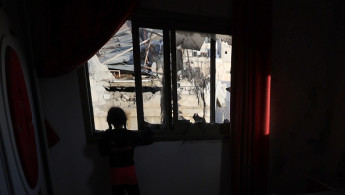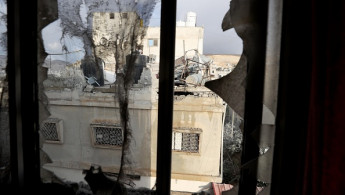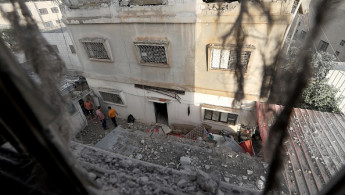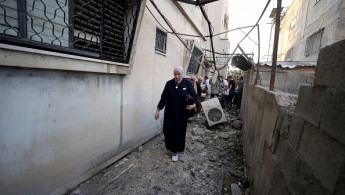'Collective punishment': Israel destroys West Bank home of slain Palestinian over alleged attack on settlers
Israeli forces have demolished the Nablus home of a Palestinian man accused of shooting at settlers in the West Bank earlier this year.
The forces destroyed the home of 49-year-old Abdul Fattah Harusha, who was shot dead shortly after allegedly carrying out an attack against two Israeli brothers from a nearby settlement as they passed through the Palestinian town of Hawara in February.
The Israeli army forced 60 Palestinian residents who lived close to Harusha's home out of their houses in the late hours of the night and held them in a mosque, according to Palestinian news outlet Safa.
The Israeli army announced the demolition early on Tuesday on social media platform X, formerly known as Twitter.
The February incident saw a violent late-night rampage by Jewish settlers who used gunfire and arson against local Palestinians in Hawara and neighbouring villages in the occupied West Bank.
The rampage, on 26 February, set the Palestinian town ablaze and resulted in the killing of one Palestinian and injury of dozens, including four critically, and left heavy material damages.
Israeli forces nearby did not intervene to stop the settler attack. Eight suspects were later detained in connection with the rampage. All of them were released within 48 hours.
Some 700,000 Israeli settlers live in the occupied West Bank and East Jerusalem, in settlements viewed as illegal by the international community.
More than 160 Palestinians, including children, have been killed by Israeli fire this year in the West Bank and East Jerusalem.
The demolition of the homes of Palestinians "suspected of carrying out attacks" on Israelis is a long-held practice which has been slammed by international rights groups as a form of collective punishment.
Rights groups say demolitions leave uninvolved parents, spouses, and children of alleged attackers homeless and thousands of Palestinians have been displaced as a result.
"International humanitarian law, including the Hague Regulations of 1907 and the Fourth Geneva Convention, prohibits collective punishment, including deliberately harming the relatives of those accused of committing crimes, in all circumstances," Human Rights Watch said in a report released in February.
"Courts around the world have treated collective punishment as a war crime."







 Follow the Middle East's top stories in English at The New Arab on Google News
Follow the Middle East's top stories in English at The New Arab on Google News


